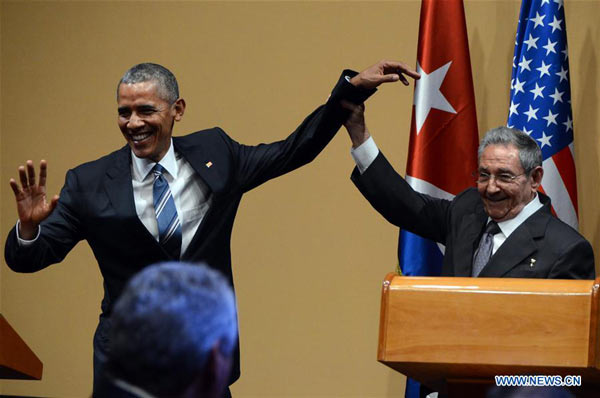Long list of conflicts divide Obama, Castro at press conference
Updated: 2016-03-22 15:17
(Xinhua)
|
||||||||
HAVANA - In a press conference on Monday, Cuban leader Raul Castro and US President Barack Obama reviewed the two countries' conflicts, focusing on the continuing economic embargo and the Guantanamo Naval Base.
While the historic trip of Obama to Cuba is seen a major step in thawing relations, this conference was a stark reminder of the conflicts that still divide the two governments.
The two men stated their readiness to work together on common challenges, but Castro did not deviate from the grievances standing in the way of the normalization of ties.
"The blockade remains in force, it contains discouraging elements, intimidating effects and is guilty of extraterritorial outreach," said Castro.
"Much more could be done if the blockade was lifted. We recognize the position of President Obama against the blockade and his repeated appeals to Congress to have it removed. However, the most reasonable measures by his administration are positive but insufficient," he added.
Castro also demanded the return of "the territory illegally occupied by the Guantanamo Base".
The US first leased the Guantanamo Bay camp from Cuba in 1903, for which it pays a ludicrously low rent of $4,085 a year. Havana has been demanding its return ever since the Cuban revolution in 1959.
Castro also lambasted Washington for its continued intervention in Cuban affairs, saying that "nobody should demand that the Cuban people renounce their freedom and sovereignty".
Castro acknowledged deep differences on "political systems, democracy, human rights, social justice, and world peace" between the two sides.
He also chastised the US for not ensuring people's right to "healthcare, education, social security, food, development and equal pay".
Concerning the issue of human rights, on which the United States has openly demanded changes in Cuba, Castro said that no country on the Earth fully meets all international human rights standards.
He also said that he has planned to discuss the issue of Venezuela but that there has not been enough time to do so. However, Castro mentioned "the destabilization that (the US) is seeking to foment in Venezuela ...which is counterproductive to the atmosphere on the continent".
In response, Obama initially struck a conciliatory note. He acknowledged that the actions taken by Washington in the past half a century had not been good for the United States or for Cuba.
He pledged that "the embargo is going to end. When, I cannot be entirely sure...and the path is going to continue beyond my administration" before reiterating the call for the Republican-held Congress to lift the blockade.
Obama also said that "the future of Cuba will be decided by Cubans, and not by anybody else".
The US president went on to hail Cuba's "enormous achievements in education and healthcare", while also welcoming relevant Cuban criticism on the United States, saying that "we welcome that constructive dialogue as well. We can learn and make the lives of our people better".
He added that it was his goal to help "bring Cuba online. In the 21st century, countries cannot be successful unless their citizens have access to the Internet".
Castro also listed the agreements struck between both countries since December 2014, saying new accords were inked Monday concerning agriculture and the joint fight against cancer and the Zika virus.
Castro ended the conference with a note of conciliation, stating that "destroying a bridge can be an easy and quick undertaking but its solid reconstruction can prove a long and difficult endeavor. I hope for a new type of relationship, one that has never existed before."
Obama's visit to Cuba, which started on Sunday and ends on Tuesday, has been the first by a US president since 1928. It marks the most important moment since Obama and Castro agreed in December 2014 to restore diplomatic ties and end half a century of hostility between the two countries.
The visit is part of Obama's Latin America tour that will also take him to Argentina.
- NASA's Kepler sees first 'shock breakout' in exploding star
- First case of Zika virus detected in S.Korea
- Syrian mothers: Survival and loss
- Gender barrier falls as Air Force general makes history
- Russia retrieves data from recorder of crashed plane
- Obama arrives in Cuba to begin visit in thawing of ties
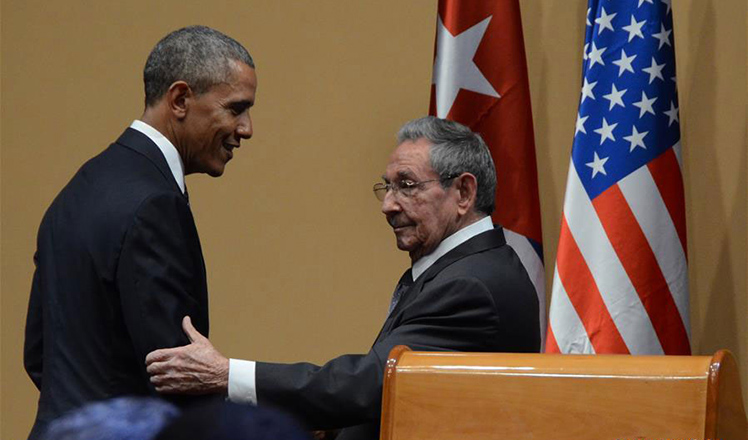
 Raul Castro and Obama hold talks in Havana
Raul Castro and Obama hold talks in Havana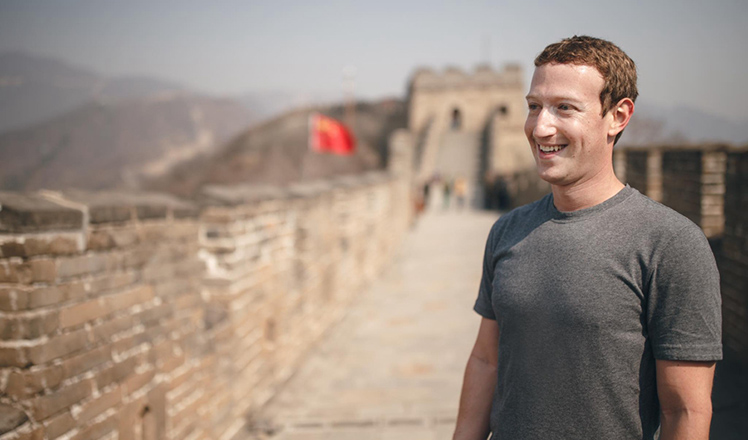
 Facebook's Mark Zuckerberg visits China's Great Wall
Facebook's Mark Zuckerberg visits China's Great Wall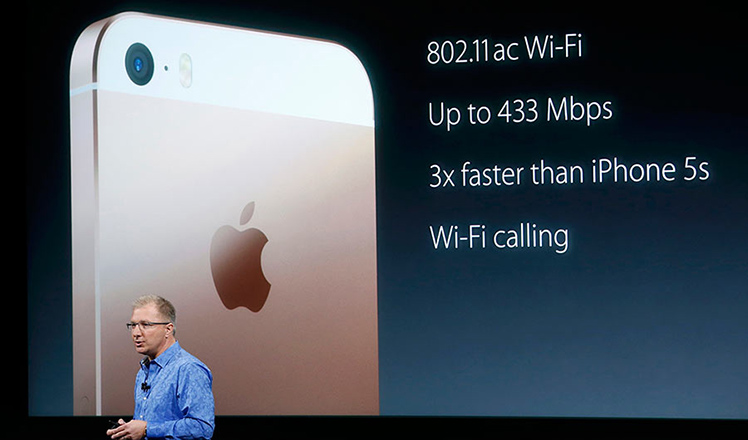
 Apple releases smaller iPhones for new consumers
Apple releases smaller iPhones for new consumers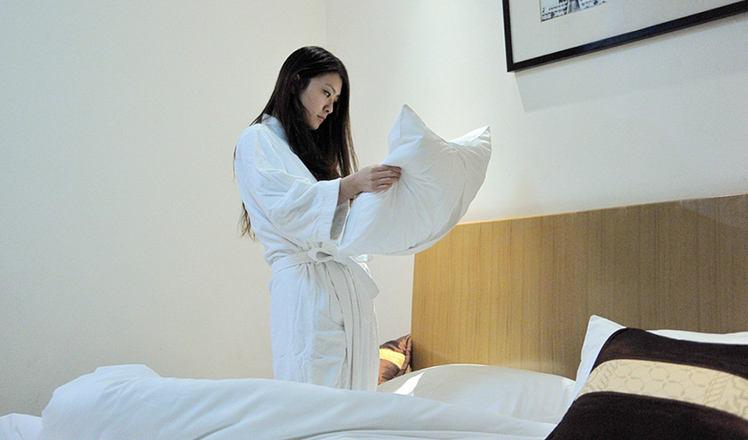
 China's 'sleep testers' search hotels for a good night's rest
China's 'sleep testers' search hotels for a good night's rest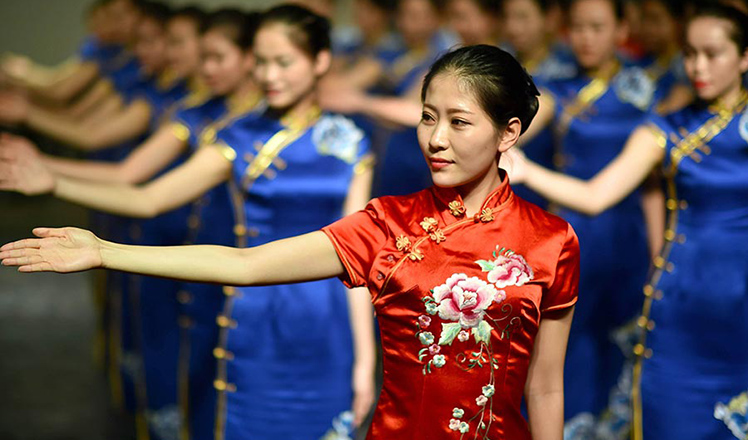
 Practice makes perfect: Preparing for Boao forum
Practice makes perfect: Preparing for Boao forum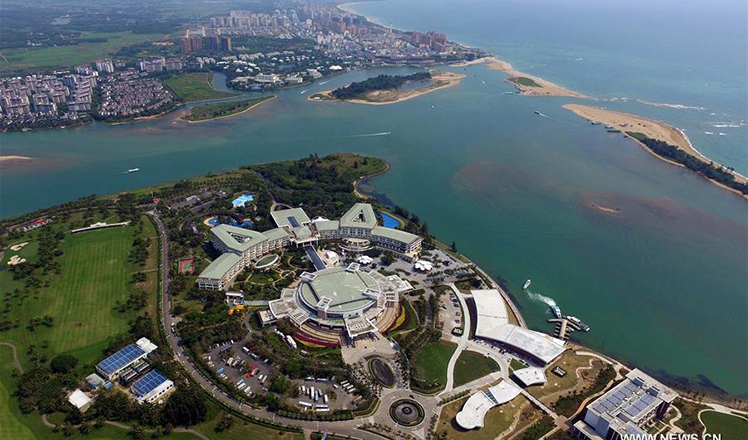
 A look of Boao Forum for Asia International Conference Center
A look of Boao Forum for Asia International Conference Center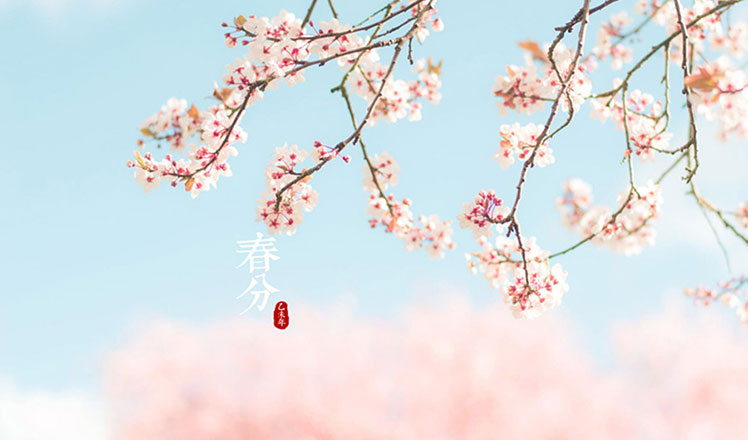
 Culture Insider: 5 things you may not know about the Spring Equinox
Culture Insider: 5 things you may not know about the Spring Equinox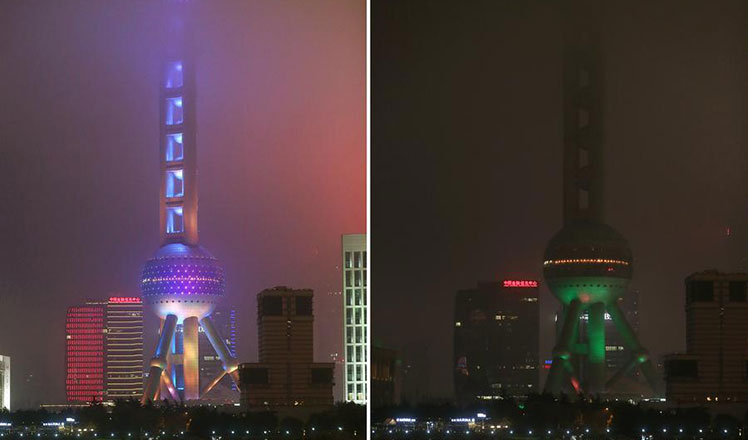
 Landmarks go dark in China for Earth Hour
Landmarks go dark in China for Earth Hour
Most Viewed
Editor's Picks

|

|

|

|

|

|
Today's Top News
Marriott unlikely to top Anbang offer for Starwood: Observers
Chinese biopharma debuts on Nasdaq
What ends Jeb Bush's White House hopes
Investigation for Nicolas's campaign
Will US-ASEAN meeting be good for region?
Accentuate the positive in Sino-US relations
Dangerous games on peninsula will have no winner
National Art Museum showing 400 puppets in new exhibition
US Weekly

|

|
